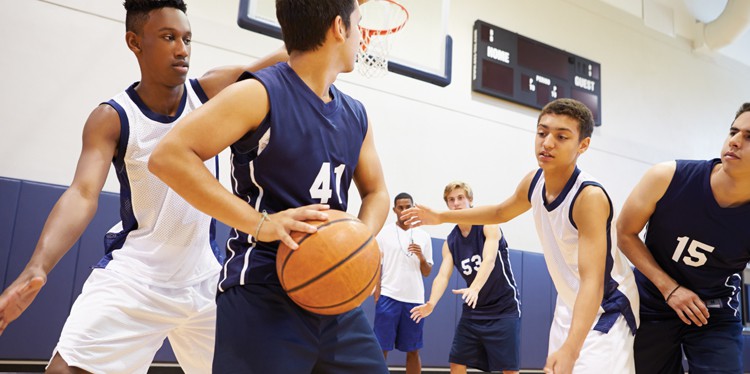Sports physicals create opportunities for healthy conversations

The start of school also signals the kick-off for school athletics. According to the Minnesota State High School League (MSHSL), the non-profit that coordinates most of the interscholastic athletics in the state, more than 300,000 youth participate in middle school or high school athletics each year from over 525 schools. In fact, despite our smaller population size, Minnesota ranks 10th in the nation for school athletic participation. This is great news for the youth of our state as physical activity and sports participation have many physical and emotional health benefits. Youth who are involved in sports are more likely to get the recommended 60 minutes of vigorous activity each day. Additionally, sports participation has been shown to improve social connection, reduce depression and suicidality, and improve confidence and self-esteem[i]. For high school boys and girls, participation in sports teams is associated with higher academic achievement as well[ii].
Why sports physicals?
 For all these eager young athletes gearing up to play this fall, the medical community recommends a pre-participation medical evaluation, otherwise known as a “sports physical.” But why is this necessary, especially if your child is healthy?
For all these eager young athletes gearing up to play this fall, the medical community recommends a pre-participation medical evaluation, otherwise known as a “sports physical.” But why is this necessary, especially if your child is healthy?
“First of all, it is required by the MSHSL once every 3 years; so no medical clearance, no play!” explains pediatrician Leslie King-Schultz, MD of Hennepin Healthcare. “But the sports physical is not intended as an exclusion tool. Instead, according to the American Academy of Pediatrics, the MSHSL – along with the medical professional organizations in pediatrics, family medicine, orthopedics, and sports medicine – have recognized that a visit to the doctor in advance of starting sports is the healthiest and safest way to participate.”
Sports physicals help identify risk factors for rare, but potentially life-threatening conditions which may manifest during physical activity, such as a heart rhythm problem. For children with a chronic health condition such as diabetes or asthma, the sports physical is an opportunity to ensure their medical condition is well controlled and provide guidance to the child and his or her coaching staff about how to best manage any exacerbation or emergency during play.
“For the healthy teen, the sports physical is a chance to give important information about injury prevention, hydration, and nutrition, concussions, risks related to weight loss or weight gain, performance-enhancing substances,” said Dr. King-Schultz. “As a bonus, healthy children may not go to the doctor for regular check-ups in their teen years. So the sports physical allows for catching up immunizations, monitoring growth, screening for other risk-taking behaviors, assessing mental health concerns, and addressing any other emerging health problems.”
While there are many locations for a sports physical to meet the requirements for medical clearance such as minute clinics and orthopedic offices, the American Academy of Pediatrics recommends that children complete the physical with their primary care office. This allows the provider to review their medical history and give more thorough wellness care.
Where to get a sports physical
Hennepin Healthcare encourages patients to schedule a check-up with their primary care provider when possible. In addition, two sports physical clinic dates are reserved on Saturday, August 3, and Saturday, August 10 at Hennepin Healthcare’s Pediatric Clinic for children who need to complete the visit before fall sports participation.
Call 612-873-6963 today so you don’t miss a play!
For more information:
https://healthychildren.org/English/healthy-living/sports/Pages/Sports-Physical-PPE.aspx
[i] Eime, R, et al. 2013. A systematic review of the psychological and social benefits of participation in sport for children and adolescents: informing the development of a conceptual model of health through sport. International Journal of Behavioral Nutrition and Physical Activity; 10:98.
[ii] Fox, C et al. 2010. Physical activity and sports team participation: associations with academic outcomes in middle school and high school students. Journal of School Health. 80(1): 31.

